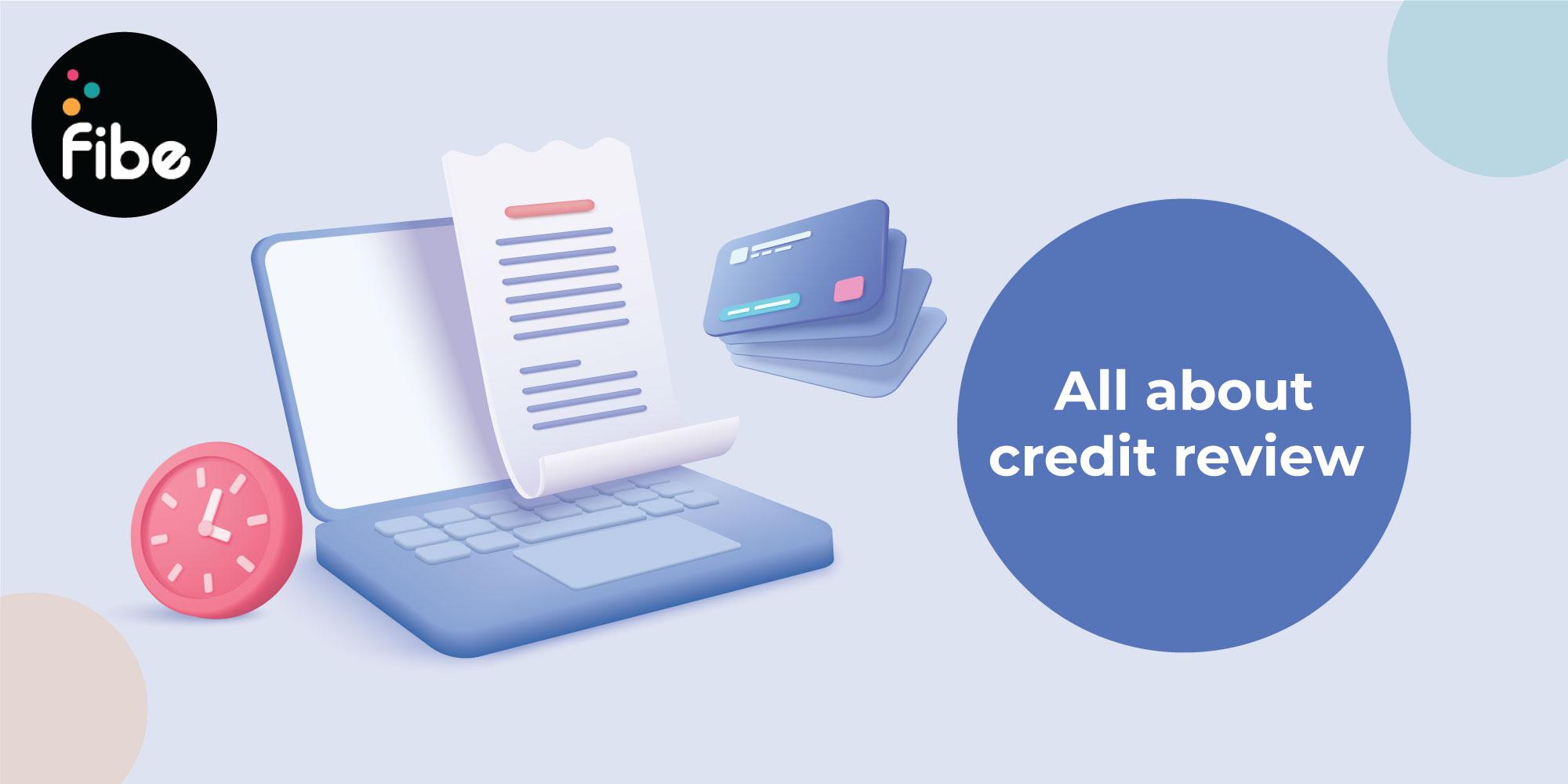- Home
- Blogs
- Personal Loan
- What Is Credit Review
Credit Review: Know the Meaning, How it Works and Importance
Reviewed by: Fibe Research Team
- Updated on: 24 Nov 2023
Reviewed by: Fibe Research Team

Credit review or appraisal is an essential part of your loan approval process. To understand why it is done, think from the lender’s point of view. Lending is associated with the risk of late repayment or non-payment. To minimise this risk, lenders conduct a review to ensure they offer financial assistance to trustworthy borrowers who have the ability to repay on time.
Read on to learn about the credit appraisal meaning, types, factors and more.
This is a process through which lenders evaluate your creditworthiness. Apart from checking your repayment ability, this evaluation also helps financial companies decide the amount and the interest rate of the loan.
Lenders check your credit report to access your financial history and repayment behaviour as well as other critical factors to make a decision. All this comes under the purview of a credit appraisal or review.
Here are the different types of credit loan reviews that you must know about.
When you apply for a loan, lenders perform an initial review to decide the loan amount and interest rate based on your financial profile. They consider your income and employment, credit report and debt-to-income ratio, among other factors.
Lenders frequently review your creditworthiness during the repayment process to ensure you meet the necessary standards. If the lender notices any issues during this review, they will reach out to you to discuss and work out your loan repayment terms.
You can conduct a self-review or a soft inquiry before applying for a loan to check your eligibility. You can get your credit report and score from the official website of any credit bureau and review your creditworthiness.
Check out the various factors that lenders consider during credit loan reviews.
A credit report includes a summary of your credit profile. Based on the report, you are assigned a credit score. A credit report includes essential information regarding your finances and credit history, including:
Lenders can access this report through credit bureaus. If you have a healthy credit score, you have a higher chance of loan approval. Conversely, if you have a lower score, the likelihood of loan approval reduces.
Lenders also consider your income and employment while deciding on your loan application. If you have a stable income, lenders consider you a safe borrower and hence, you have a higher chance of loan approval.
On the other hand, if you have an irregular or seasonal income, lenders may consider you a risky borrower and not approve your application. Lenders also consider the credibility of your employer, as it can help them understand more about your income stability.
The debt-to-income ratio gives insights into how much debt you have against your income and is a critical parameter that lenders check during a review. Lenders prefer a lower debt-to-income ratio since it reflects lower dependence on credit, higher dispensable income and higher financial stability.
It shows a higher repayment capacity, making you a low-risk borrower. Ideally, you should keep your debt-to-income ratio below 35%.
You need to offer collateral if you take a secured loan. The security that you can pledge generally refers to assets like gold, property of vehicle documents and deposit accounts, among others. In case you fail to repay your loan, lenders can use the collateral to get the amount.
During the credit appraisal process, lenders check the authenticity and the quality of the collateral before approving the application.
Now that you know what credit loan reviews are, you can plan out how to borrow to ensure quick access to funds. Also, check your credit score in advance to avoid rejections. If you do not have a credit score yet or do not have a a good score, do not worry.
At Fibe, we do not rely on your credit score to approve your application. Instead, our proprietary alternate credit scoring algorithm helps us lend more inclusively. You can get an Instant Personal Loan of up to ₹5 lakhs at affordable rates and flexible tenures by meeting our simple eligibility terms. Download the Fibe Personal Loan App or register on our website to apply online in just a few clicks!
A credit review is when the financial institution assesses your credit profile to decide if you qualify for a loan. Lenders also use this assessment to finalise your loan terms.
A credit reviewer or a credit analyst is a professional who assesses your creditworthiness when you apply for a loan. Such professionals determine the likelihood of loan repayment by reviewing your financial health. This includes checking your credit score, income and employment, debt-to-income ratio and other factors.
The credit appraisal process has multiple stages and can take a few days up to a few weeks. This depends on your profile, loan type, loan amount and the lender’s policies.
After completing the review process, the lender approves or rejects your application based on their assessment of your creditworthiness.